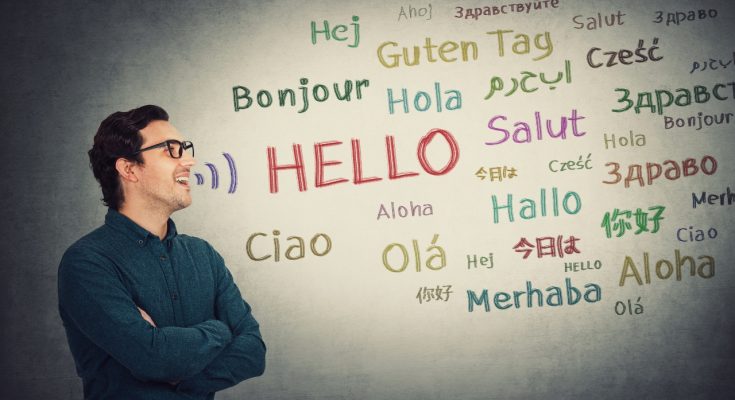Language and culture are deeply intertwined, with each reflecting and shaping the other in significant ways. Words are not just tools for communication; they are windows into the values, beliefs, and social norms of a society. This article explores how language and culture are interconnected and how words reflect and influence societal dynamics.
Introduction
Language is a fundamental aspect of human life. It allows us to communicate our thoughts, emotions, and experiences, and it plays a crucial role in shaping our identity and culture. Culture, on the other hand, encompasses the beliefs, practices, and social behaviors of a group of people. The relationship between language and culture is complex and multifaceted, with words often serving as a mirror to societal values and cultural norms.
In this article, we will delve into how language reflects cultural aspects, how cultural changes influence language, and how the evolution of language can offer insights into societal transformations.
The Interplay Between Language and Culture
How Language Reflects Cultural Values
Language is a reflection of the culture from which it originates. Words and phrases often carry meanings and connotations that are deeply rooted in cultural practices and societal values. For example:
- Honorifics and Politeness: In languages such as Japanese and Korean, honorifics and polite forms of speech are crucial in showing respect and maintaining social harmony. These linguistic features reflect the high value placed on social hierarchy and respect within these cultures.
- Concepts of Time: Different cultures perceive and prioritize time differently, which is reflected in their language. For instance, some languages have multiple words for different types of time (e.g., past, present, future), while others may have a more fluid concept of time, indicating a less rigid approach to scheduling and planning.
- Family Structures: Languages often include specific terms for various family relationships that highlight the importance of family roles and connections. For example, in many Indigenous languages, there are distinct terms for different types of relatives, emphasizing the close-knit nature of family and kinship networks.
Cultural Influences on Language Development
Language evolves in response to cultural changes. As societies undergo transformations, their language adapts to reflect new realities. For instance:
- Technological Advancements: The rise of technology has led to the creation of new vocabulary and expressions. Terms like “internet,” “smartphone,” and “social media” have become integral parts of modern language, reflecting the impact of technological advancements on daily life.
- Social Movements: Language can also reflect societal shifts driven by social movements. The adoption of terms related to gender identity, such as “non-binary” or “genderqueer,” illustrates how language evolves to accommodate and recognize changes in social attitudes and understandings of gender.
- Globalization: As cultures interact and blend through globalization, languages borrow and integrate words from other languages. This borrowing process enriches the vocabulary of a language and reflects the growing interconnectedness of the global community.
Case Studies: Words that Reflect Cultural Norms
The Concept of “Hygge” in Danish Culture
One of the most notable examples of how language reflects cultural values is the Danish word “hygge.” Pronounced “hoo-gah,” hygge encompasses a sense of coziness, comfort, and contentment. It reflects the Danish cultural emphasis on creating a warm, inviting atmosphere and finding joy in simple pleasures. The popularity of this concept outside Denmark highlights how certain cultural values can resonate universally and influence global trends.
The Impact of “Chicano” Identity in the United States
The term “Chicano” emerged in the United States during the Chicano Movement of the 1960s and 1970s, representing Mexican Americans who sought to reclaim their cultural identity and assert their rights. The word reflects a unique cultural and political identity that bridges Mexican and American heritage, illustrating how language can serve as a tool for cultural expression and resistance.
The Role of “Ubuntu” in Southern African Cultures
“Ubuntu” is a Southern African philosophy that translates to “I am because we are.” It emphasizes communal values, interconnectedness, and mutual support. The word embodies the cultural belief in the importance of community and the collective well-being of individuals, highlighting how language can encapsulate and transmit cultural philosophies.
The Evolution of Language as a Reflection of Cultural Change
The Role of Language in Social Change
Language plays a significant role in social change by shaping and reflecting evolving attitudes and norms. For example:
- Civil Rights Movement: The civil rights movement in the United States brought about changes in language related to race and equality. Terms like “African American” and “civil rights” became prominent, reflecting shifts in societal attitudes toward race and justice.
- Environmental Awareness: Growing environmental consciousness has introduced terms like “sustainability” and “carbon footprint” into everyday language. These terms reflect a cultural shift toward greater awareness and responsibility for environmental impact.
Language Preservation and Revitalization
The preservation and revitalization of endangered languages offer insights into cultural resilience and adaptation. Efforts to revive languages such as Hawaiian or Māori highlight the importance of language in maintaining cultural heritage and identity. These efforts also reflect broader societal trends toward recognizing and valuing cultural diversity.
Conclusion
The relationship between language and culture is profound and multifaceted. Words not only reflect cultural values and norms but also adapt to societal changes and influence cultural evolution. By studying how language reflects and shapes society, we gain a deeper understanding of both linguistic and cultural dynamics. Language serves as a powerful tool for expressing cultural identity, navigating social change, and preserving heritage, underscoring the intricate connection between words and the world they represent.




